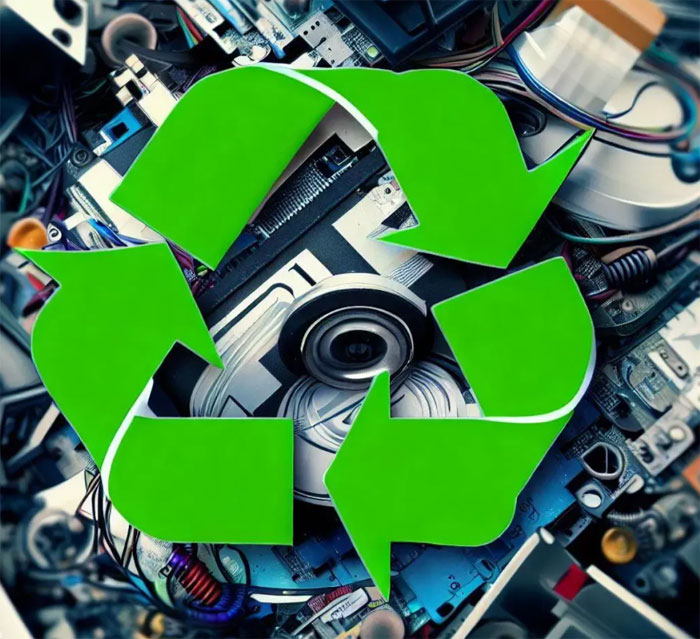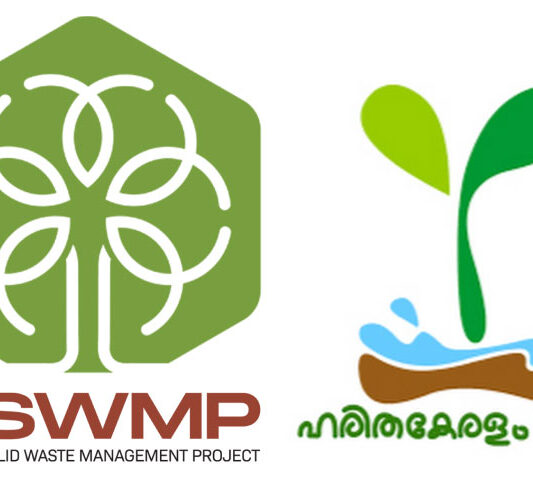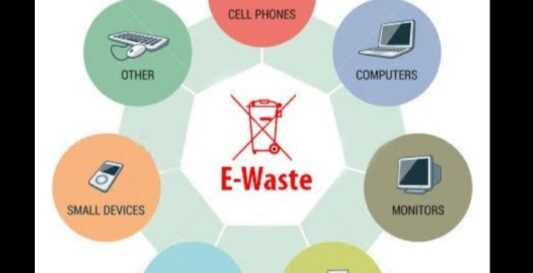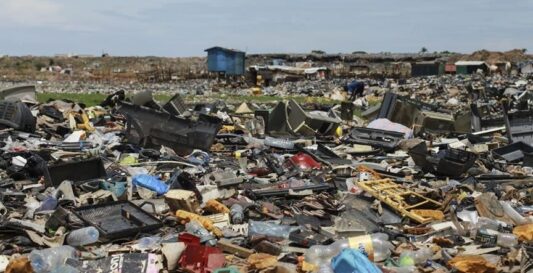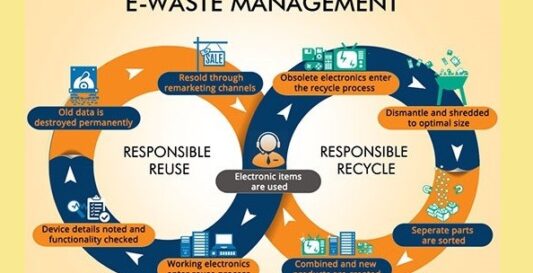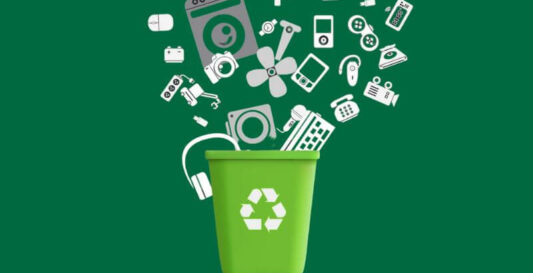Managing e-waste involves a combination of strategies aimed at reducing the generation of electronic waste, promoting responsible consumption and disposal practices, and ensuring that e-waste is properly recycled and managed. Here are some key steps to manage e-waste effectively:
- Reduce: Encourage consumers to minimize electronic waste by choosing durable products, repairing devices instead of replacing them, and avoiding unnecessary upgrades or purchases. Manufacturers can also play a role by designing products for longevity and recyclability.
- Reuse: Promote the reuse of electronic devices through donation, resale, or refurbishment. Encourage consumers to donate or sell their old electronics instead of discarding them, and support programs that refurbish and redistribute used devices to those in need.
- Recycle: Establish accessible and convenient recycling programs for electronic waste, including drop-off locations, collection events, and manufacturer take-back programs. Educate consumers about the importance of recycling e-waste and provide information on how to properly dispose of old electronics.
- Legislation and Regulation: Implement and enforce regulations to govern the management and disposal of electronic waste, including requirements for proper recycling and disposal practices, restrictions on hazardous substances in electronics, and producer responsibility programs.
- Education and Awareness: Raise awareness about the environmental and health impacts of e-waste and promote responsible consumption and disposal practices through education campaigns, outreach programs, and community engagement initiatives.
- Investment in Recycling Infrastructure: Invest in the development of recycling infrastructure and technologies to improve the efficiency and effectiveness of e-waste recycling processes. Support research and innovation in e-waste recycling methods, including the development of new recycling technologies and processes.
- Corporate Responsibility: Encourage businesses to adopt sustainable practices throughout the electronics supply chain, including responsible sourcing of materials, product design for recyclability, and end-of-life management of electronic products.
- International Cooperation: Foster collaboration and cooperation at the international level to address the global challenges of e-waste management. Support initiatives to improve e-waste recycling and management practices in developing countries, where e-waste disposal often poses significant environmental and health risks.
By implementing these strategies and working together across sectors, we can effectively manage e-waste and mitigate its environmental and social impacts.

